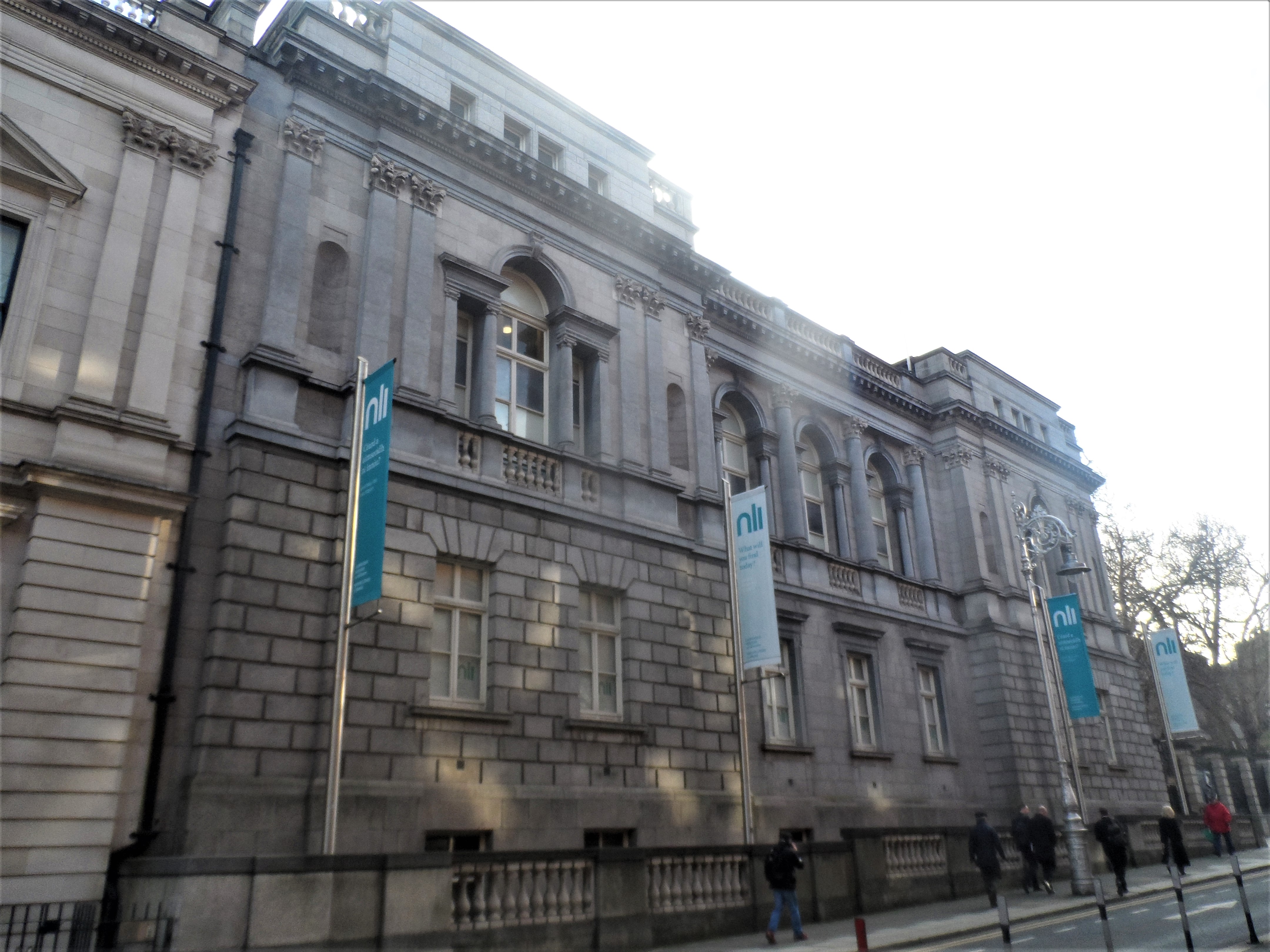|
Alf MacLochlainn
Alf MacLochlainn (30 July 1926 - 8 December 2018) was an Irish librarian and Director of the National Library of Ireland. Alf MacLochlainn was born on 30 July 1926 in Dublin. He graduated from University College Dublin with a Bachelor of Arts degree in French and Irish in 1947. He was appointed a librarian in National Library of Ireland in 1949, going on to be appointed the director of the NLI in 1976. He took up the post of university librarian in NUI Galway in 1983 until he retired in 1991. He died on 8 December 2018. Early life and family Alfred (Alf) MacLochlainn was born in 1926 in Dublin to Alfred Vincent MacLochlainn, who was a photographer, and Marcella Dowling. Marcella's brother was Séan Dowling, also known under the alias of John Philip Dowling, who was involved in the Irish Revolutionary Period spanning 1916 up until 1923. Seán Dowling was appointed Commandant of the 4th Battalion in 1920 and was the President of the old IRA Cumann in 1930s to 1940s. Alf MacLochl ... [...More Info...] [...Related Items...] OR: [Wikipedia] [Google] [Baidu] |
National Library Of Ireland
The National Library of Ireland (NLI; ) is Ireland's national library located in Dublin, in a building designed by Thomas Newenham Deane. The mission of the National Library of Ireland is "To collect, preserve, promote and make accessible the documentary and intellectual record of the life of Ireland and to contribute to the provision of access to the larger universe of recorded knowledge." The library is a reference library and, as such, does not lend. It has a large quantity of Irish and Irish-related material which can be consulted without charge; this includes books, maps, manuscripts, music, newspapers, periodicals and photographs. Included in its collections are materials issued by private as well as government publishers. Among the library's major holdings are an archive of Irish newspapers and collections donated by individual authors or their estates. The library is also the ISSN National Centre for Ireland. The office of the Chief Herald of Ireland, the National ... [...More Info...] [...Related Items...] OR: [Wikipedia] [Google] [Baidu] |
Royal Irish Academy
The Royal Irish Academy (RIA; ), based in Dublin, is an academic body that promotes study in the natural sciences, arts, literature, and social sciences. It is Ireland's premier List of Irish learned societies, learned society and one of its leading cultural institution, cultural and academic institutions. The academy was established in 1785 and granted a royal charter by King George III in 1786. the RIA has 600 members, with regular members being Irish residents elected in recognition of their academic achievements, and honorary members similarly qualified but usually based abroad; a small number of members are also elected in recognition of non-academic contributions to the Irish society. All members are entitled to use the honorific title MRIA with their names. Until the late 19th century the Royal Irish Academy was the owner of the main national collection of Irish antiquities. It presented its collection of archaeological artefacts and similar items, which included such ... [...More Info...] [...Related Items...] OR: [Wikipedia] [Google] [Baidu] |
People Associated With The National Library Of Ireland
The term "the people" refers to the public or common mass of people of a polity. As such it is a concept of human rights law, international law as well as constitutional law, particularly used for claims of popular sovereignty. In contrast, a people is any plurality of persons considered as a whole. Used in politics and law, the term "a people" refers to the collective or community of an ethnic group or nation. Concepts Legal Chapter One, Article One of the Charter of the United Nations states that "peoples" have the right to self-determination. Though the mere status as peoples and the right to self-determination, as for example in the case of Indigenous peoples (''peoples'', as in all groups of indigenous people, not merely all indigenous persons as in ''indigenous people''), does not automatically provide for independent sovereignty and therefore secession. Indeed, judge Ivor Jennings identified the inherent problems in the right of "peoples" to self-determination, as i ... [...More Info...] [...Related Items...] OR: [Wikipedia] [Google] [Baidu] |

